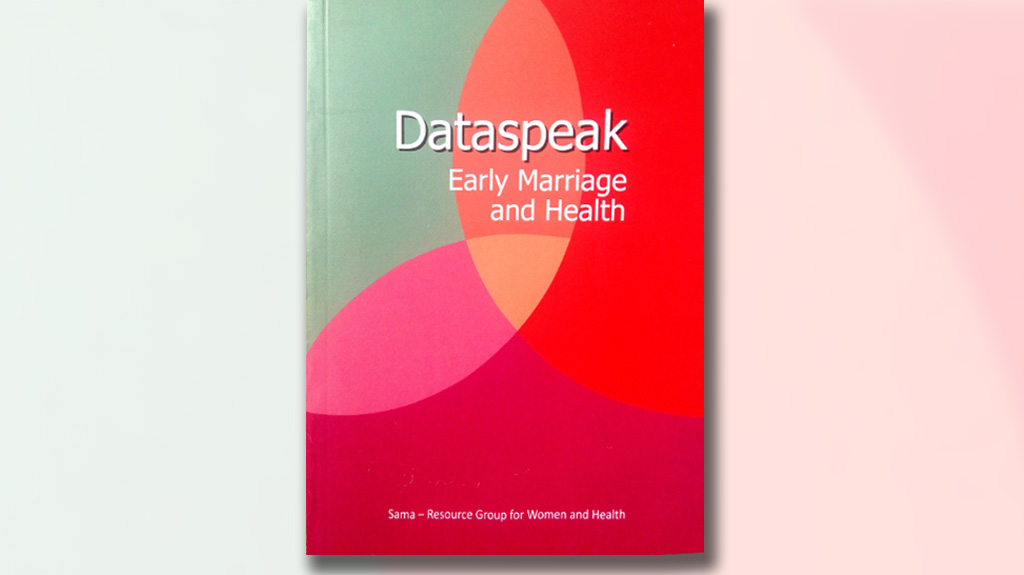
2015 | Sama
This report is based on the research conducted by Sama in 2014 which involved the systematic mapping and analysis of literature and data and a review of national and state health policies, programs and strategies relevant to early and child marriage and health outcomes in India. Recent studies on early and child marriage in India emphasize that deep analysis of socioeconomic influences, including education, poverty and urbanization as well as cultural and social norms, is necessary to address the phenomenon. There is acknowledgement that early and child marriage have health linkages, but the research to date rarely extends beyond the consequences for maternal and infant health, thus excluding any comprehensive understanding of the impact of early marriage on other aspects of health. The majority of efforts to address early and child marriage have been located outside the health system, despite its wide reach and its capacity to identify the implications of early marriage upon the health of girls and women. Thus, research on current national data and strategies in India—including those aimed at young people—to understand their implications for the health of women in early marriages was undertaken. The research also sought to identify future strategies, including areas for future research and action located in the health care system and from a public health framework.
The findings from the research on early/child marriage and health, reflect and discuss on key issues and concerns that have emerged such as universal and early nature of marriage in India, absence of data collection and analysis from an early marriage perspective, and need for debate, discussion on early marriage in the context of health and public health framework. Based on the data and the many gaps in data that emerged through the review, mental health and its linkages with early marriage was identified an area for further research.



